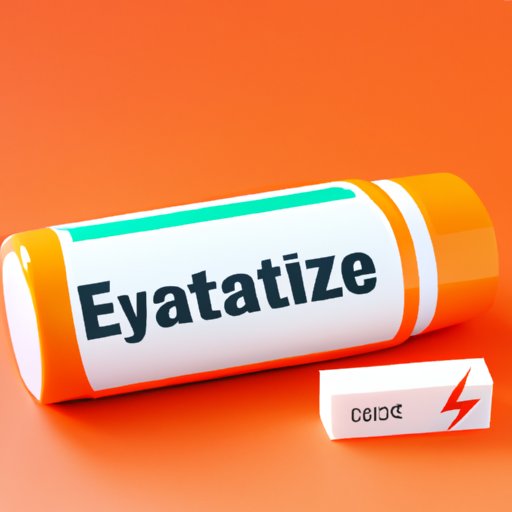
Introduction
Electrolytes are essential to the body’s functioning and are responsible for many important bodily functions. However, too much of a good thing can be harmful. In this article, we explore the question of whether it is possible to have too many electrolytes, the risks and dangers of an electrolyte imbalance, and how to maintain optimal levels.
Understanding the Importance of Electrolytes: Can You Have Too Much of a Good Thing?
Electrolytes are minerals that carry an electrical charge and are essential for regulating important bodily functions. They help maintain fluid balance, regulate blood pressure, support nerve and muscle function, and assist in the absorption and transport of nutrients. The optimal levels of electrolyte balance vary depending on age, health status, and activity level, but generally, the body needs a specific balance of electrolytes to function properly.
While it is crucial to maintain adequate electrolyte balance, it is possible to consume too many electrolytes. This can lead to an electrolyte imbalance, which can cause serious health problems such as dehydration, kidney failure, or heart problems.
Electrolyte Overload: The Dangers of Consuming Too Many Electrolyte-Rich Foods and Drinks
Electrolytes are found in many different foods and drinks, including sports drinks, supplements, and certain fruits and vegetables. While consuming electrolyte-rich foods and drinks can help support optimal electrolyte levels, overconsumption has its dangers.
Common sources of electrolytes include sodium, potassium, magnesium, and calcium. These minerals can be found in sports drinks, energy drinks, and electrolyte supplements, among other things. Consuming too many of these products can lead to an excess of these minerals in the body, which can lead to negative health consequences.
Some people may be at risk of consuming too many electrolytes if they engage in strenuous activities or are exposed to hot weather for extended periods. In such cases, it’s important to monitor electrolyte levels and make sure to replenish fluids without overcompensating with electrolyte-rich products.
Finding Balance: How to Maintain Proper Electrolyte Levels Without Going Overboard
One of the best ways to maintain proper electrolyte balance is through a balanced and varied diet that includes a diverse range of fruits, vegetables, and whole grains. For those engaged in regular exercise, it is essential to drink enough fluids and to replenish electrolytes after exercise.
To keep electrolyte levels balanced, it’s important to prioritize hydration and to listen to your body’s needs. It’s also important to know where to find electrolytes in food, such as bananas, avocados, nuts, and leafy greens, and to choose foods that support overall health while also supporting proper electrolyte balance.
Electrolyte Imbalance: The Risks, Symptoms, and How to Avoid Overdoing It
An electrolyte imbalance can lead to dangerous health conditions, such as dehydration, kidney failure, and heart problems. It’s important to know the symptoms of an electrolyte imbalance, which include muscle cramps, weakness, fatigue, and nausea, and to seek medical attention if symptoms persist.
Maintaining proper electrolyte balance requires monitoring intake and making lifestyle choices that support proper electrolyte levels. This includes drinking enough fluids, eating nutritiously, and avoiding overconsumption of electrolyte-rich foods or drinks.
The Truth About Electrolytes: Separating Myth from Reality and Finding the Right Amount for Your Body’s Needs
There are many myths and misconceptions about electrolytes and electrolyte balance. For example, some people believe that they need to consume sports drinks to support optimal electrolyte levels, even when they aren’t engaging in strenuous activities or are sitting in an air-conditioned room. In reality, these drinks often contain high amounts of sugar and sodium, which can lead to overconsumption and negative health consequences.
It’s also important to recognize that individualized electrolyte needs vary depending on factors such as age, gender, health status, and activity level. It’s essential to determine the right amount of electrolytes for your body’s needs and to monitor intake regularly to ensure proper balance is maintained.
Conclusion
Maintaining proper electrolyte balance is essential for optimal health and well-being. While it is possible to consume too many electrolytes, it is also essential to consume enough to support proper bodily function. Balancing electrolyte intake through a healthy lifestyle that includes a varied diet, adequate hydration, and regular exercise is key to optimal electrolyte balance. Remember to listen to your body’s needs, monitor your intake, and seek medical attention if you have concerns about your electrolyte levels.





